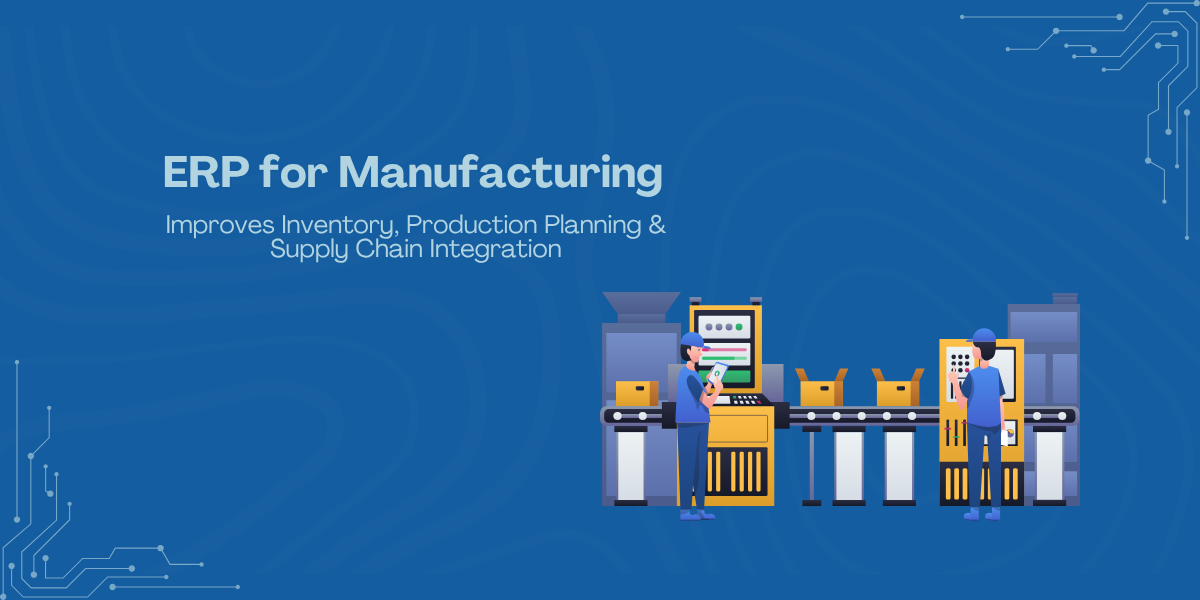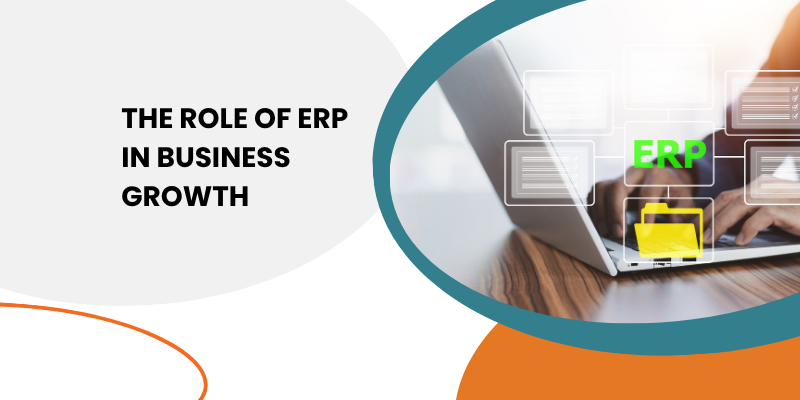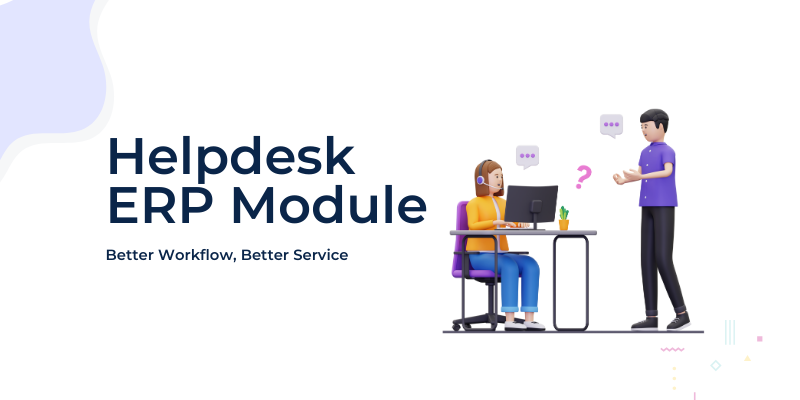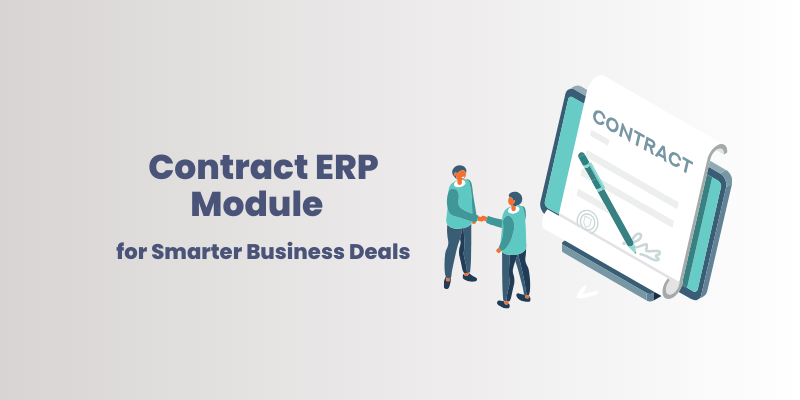Manufacturing operations often deal with many tasks at once — from managing stock to planning production and keeping the supply chain in order. Without proper tools, handling these areas can be time-consuming and confusing. This is where ERP for manufacturing plays an important role.
ERP stands for Enterprise Resource Planning. It is software that brings all the different parts of a manufacturing operation into one system. With the help of ERP, manufacturers can handle inventory, schedule production, and manage supply chains in a smooth and organized way.
Let’s explore how ERP helps improve each of these areas: inventory, production planning, and supply chain integration.
Here’s how ERP for manufacturing makes daily work easier and more organized:
Better Inventory Management
Managing inventory means keeping track of raw materials, parts, and finished products. Without a system in place, it’s easy to lose control of stock levels — sometimes you have too much, and other times you don’t have enough.
Real-Time Inventory Tracking
With ERP, businesses can easily check how much stock they have whenever they need to. This means knowing exactly how much material is available, where it’s stored, and when new stock will arrive. This avoids delays in production caused by missing items.
Automatic Reorder Alerts
ERP systems can set alerts to reorder materials when they fall below a certain level. This helps avoid running out of necessary stock and keeps production running without delays.
Reduce Waste and Over-Stocking
By keeping records accurate, ERP helps reduce extra stock that is not needed. LHaving less extra stock saves money and frees up storage space.
Batch and Serial Number Tracking
Manufacturers can track specific batches or individual items, which is helpful in case of product recalls or quality checks.
Improved Production Planning
Production planning means deciding what to produce, when to produce it, and how much to produce. If planning is not done well, it can cause delays, higher costs, and upset customers. ERP makes this planning simple, clear, and more dependable.
Clear Production Schedules
ERP makes clear production plans by using customer orders, available materials, and machine time.This helps manufacturers stick to deadlines.
Resource Management
The system ensures that all resources like machines, labor, and materials are available when needed. It stops problems like booking two jobs for the same machine at once.
Work Order Management
ERP helps create and manage work orders. It tracks the status of each job from start to finish, so nothing is missed and work stays on schedule.
Time and Cost Tracking
It becomes easier to track how long production takes and how much it costs. This helps in improving productivity and cutting down on unnecessary expenses.
Supply Chain Integration
The supply chain covers all steps, from getting raw materials to sending finished products to customers. A strong supply chain means smoother operations and satisfied customers.
Vendor and Supplier Management
ERP keeps records of suppliers, prices, and delivery timelines. It helps in choosing reliable vendors and managing relationships in a better way.
Purchase Order Automation
It can create and send purchase orders automatically when materials are low. This speeds up the process and avoids delays in getting raw materials.
Real-Time Supply Chain Visibility
Everyone in the business can check how each step of the supply chain is going. From raw material arrival to shipping products, everything is tracked and visible.
Improved Customer Service
Since ERP gives real-time updates and better planning, businesses can give customers accurate delivery dates.Delivering orders on time helps customers trust the business and keeps them happy.
Main Benefits of ERP in Manufacturing Work
- Increased Accuracy: With automated tracking and planning, errors are reduced.
- Time Saving: Tasks like order creation, stock checking, and scheduling are done faster.
- Cost Control: Less waste, fewer delays, and better purchasing save money.
- Better Decisions: With complete information available, managers can make informed choices.
Supports Growth: ERP systems can expand as the business grows, handling more production and sales easily.
How Code Agrius’ Oreius ERP Supports Manufacturing Operations Efficiently
Code Agrius has developed a reliable ERP system called Oreius ERP that focuses on the real needs of manufacturing businesses.
Oreius ERP helps by:
- Managing inventory with real-time tracking and smart alerts
- Planning production by creating simple schedules and keeping track of tasks
- Helping the supply chain with automatic ordering and managing suppliers
The goal of Oreius ERP is to make daily operations easier, faster, and more organized for manufacturers. With user-friendly tools and simple features, it is designed to support businesses of all sizes — whether they are small, mid-level, or large manufacturing setups.
FAQs
How does ERP help with inventory?
ERP tracks inventory levels in real time, sets alerts for reordering, reduces extra stock, and provides detailed reports.
Is production planning easier with ERP?
Yes, ERP systems create clear schedules, track job progress, and ensure that all resources are available, making planning easier.
Can ERP help improve customer delivery times?
Yes, because ERP improves planning and supply chain tracking, businesses can deliver products on time and keep customers satisfied.
What makes Oreius ERP by Code Agrius different?
Oreius ERP focuses on simplicity, clear tools, and practical features. It helps with real-time inventory, smart production planning, and better supply chain connections — all in one easy system.






